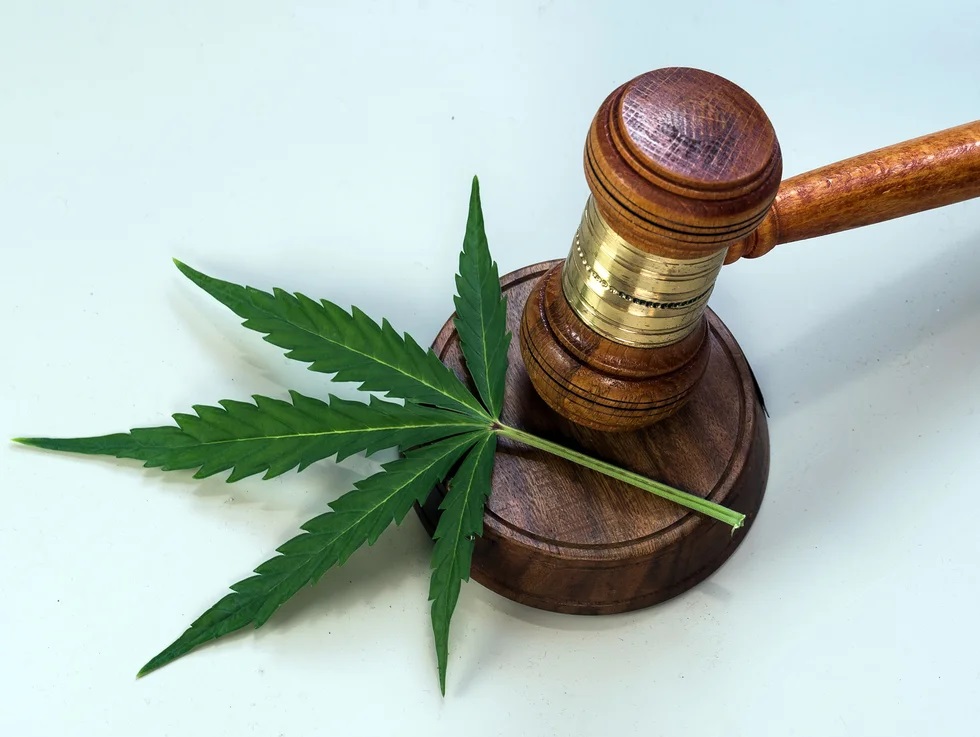Roadblocks to Cannabis Trademark Registration
May 19, 2023

One of the elements of applying for federal trademark registration is that your product or service must be used in federally lawful commerce. The USPTO will refuse applications where the record indicates that the goods or services associated with the mark violate federal law. That element and two federal acts present roadblocks to USPTO trademark registrations related to cannabis. This post discusses those two roadblocks and how to potentially overcome them with the USPTO.
Controlled Substances Act (CSA)
First up is the federal Controlled Substances Act (CSA). While 39 states and Washington DC have legalized medical marijuana in some form – including 19 states that have legalized recreational marijuana – cannabis is still classified as a Schedule I Controlled Substance under the CSA which makes cannabis illegal on the federal level. The CSA is the same act that prevents cannabis companies from banking with federally regulated banks, from taking federal business-related tax deductions, and from advertising on mediums under the regulation of the Federal Communications Commission (FCC).
CSA refusals from the USPTO are issued when a trademark examiner determines that the applicant’s good or service is directly connected to a controlled substance, in this case marijuana. It is also important to note that newer products like Delta-8 THC remain in limbo on the federal level and applications related to these goods will usually result in a CSA refusal from the USPTO.
2018 Farm Bill
The 2018 Farm Bill did legalize hemp and CBD that contains less than .3% THC on the federal level. The Farm Bill allows those products and services related to those products to overcome CSA refusals. However, there is a second federal act that can lead to a USPTO refusal for these types of applications. That is the Food, Drugs, and Cosmetics Act (FDCA). As of the date of this post, the Food and Drug Administration (FDA) has not approved, and therefore the FDCA does not permit, the use of hemp CBD in ingestible products or in products that promote medicinal or therapeutic properties. Similar to how the USPTO treats the CSA, the USPTO follows FDCA regulations and will refuse applications that appear to violate the FDCA.
Registration with the USPTO
So what is the solution? First, there are a number of products and services that do not violate these acts. Apparel and information services are just a couple examples of products and services that do not violate federal law. Second, there is certain legal language that can be used in your federal trademark application to avoid and/or overcome USPTO refusals based on the CSA or the FDCA. Using the proper legal language in your application is a must to having your application processed as efficiently as possible.
Feel free to Contact Alex if you have any questions about the post or to get started on registering your cannabis related trademarks.
Related
USPTO TM Resource Page
uspto ip identifier tool
Free trademark guide
602 Rutledge Avenue
Charleston, SC 29403
(843)701-1717
alex@charlestontrademarklaw.com
602 Rutledge Avenue
Charleston, SC 29403
(843) 701-1717
alex@charlestontrademarklaw.com
Charleston Trademark Law is a private business and is not affiliated in any way with any governmental entity including the City of Charleston and Charleston County.
© 2024 charleston trademark law llc. all rights reserved. privacy policy.
Small Business Trademark registration guide